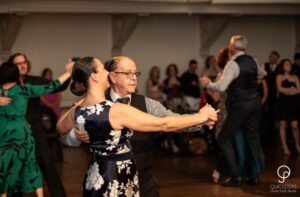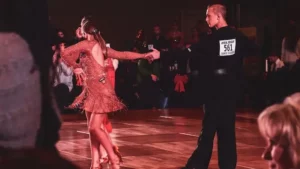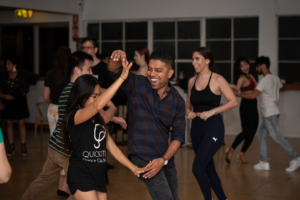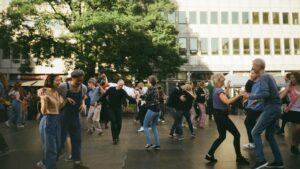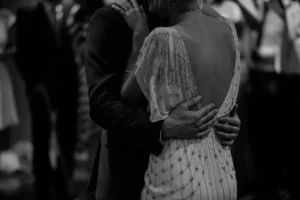Dancing is as simple as moving rhythmically to music. It is also a form of expression and art that should be fun. If you are not yet learning to dance, you should. Dancing has an immense impact on your emotional, mental and physical health.
Dance improves balance and strength, challenges your brain, and boosts your mood. You also get to interact with other dancers and make new friends.
Thankfully, anybody can dance! There is no age restriction as to when you should start learning the art of dance. But age may restrict the type of dance you can enroll in.
So what is the best age to start dance lessons?
Anyone that has ever taught a child something will tell you how ‘sponge-like’ their little minds are. They just pick up new things so quickly! Unfortunately, this doesn’t seem to remain the case as we get a bit older. While having taught both kids and adults to dance, there is no question that children learn at almost double the speed at which adults do, so starting earlier will undoubtedly make the journey easier for the student. That’s not to say that if you didn’t learn to dance as a child, all hope is lost.
What do dance classes look like for different age groups?
If you’re looking at getting your child into dance lessons, most of these will start around the age of three and offer styles such as ‘baby ballet.’ We use the term ‘ballet’ loosely as much of their time in these classes will be composed of singing songs, running around the room to music, and clapping.
As they get older, the styles will open up into things like Jazz, Tap, and even Hip Hop.
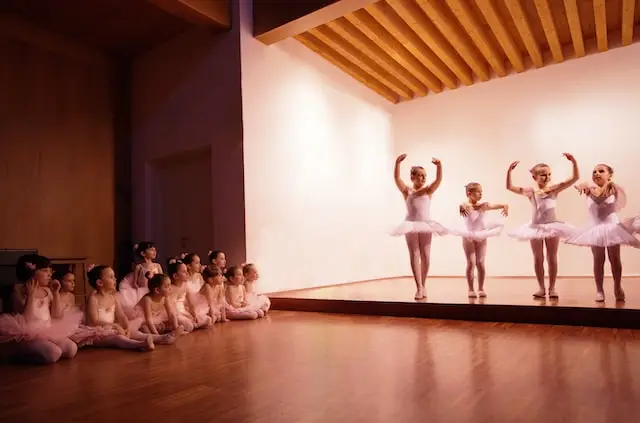
Looking at starting dance classes as an adult? While there are a few places that offer adult ballet or tap, a majority of adult classes will be in the Ballroom / Latin / Swing categories of dance or ‘partner’ style dancing.
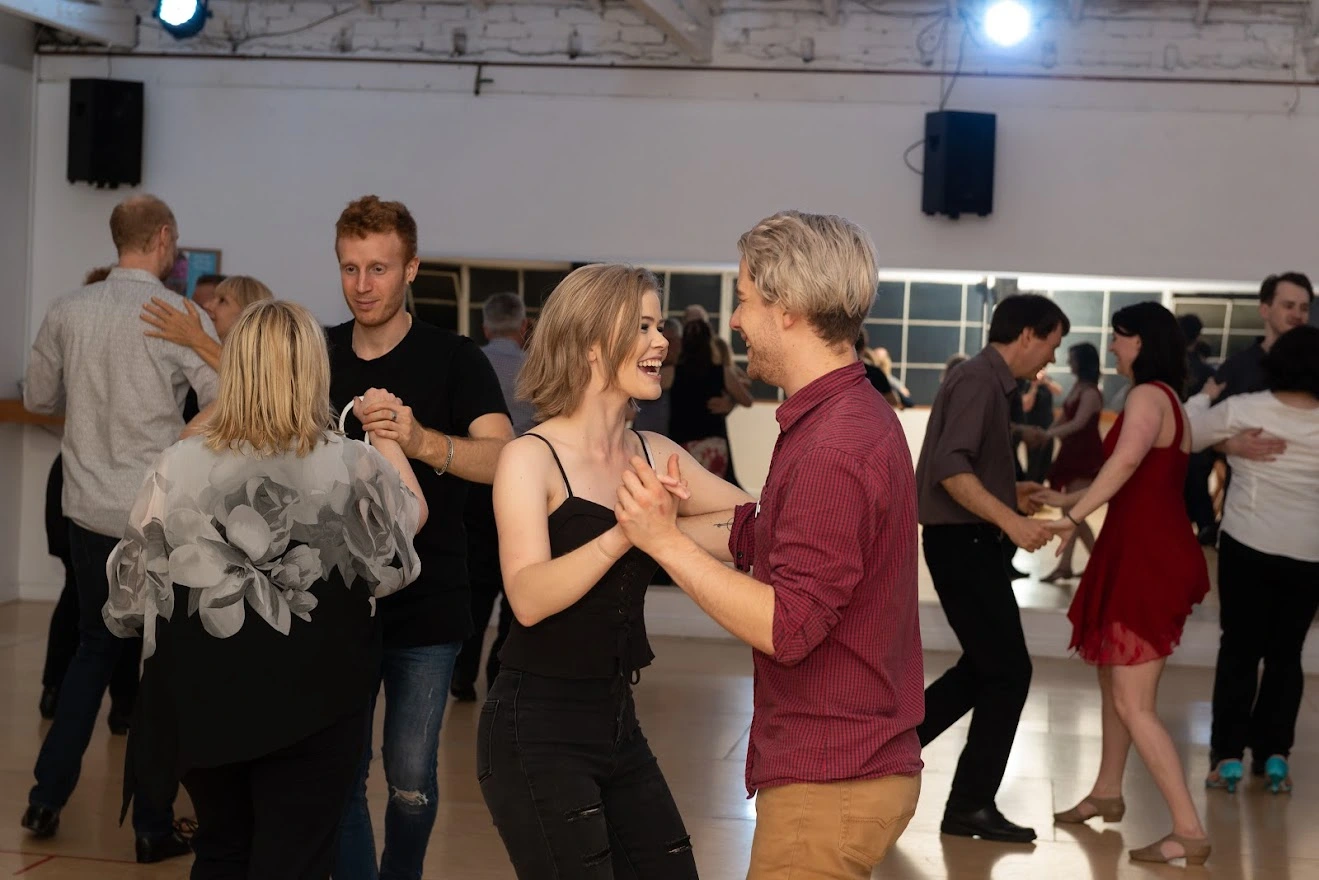
Social benefits of dance classes
Kids benefit hugely from the social side of their dance classes. They are in a new group of kids outside of childcare/kindergarten or school, and they can form new friendships there. If they are working towards an end-of-term concert, they also learn to work together in a team towards a goal.
Whilst we adults aren’t necessarily learning a dance routine in a big group the way the kids are, the social benefits of dance classes are huge! By joining a dance group, you are thrown into a new community of people with a common interest, so you immediately have something to talk about. In the social dance world, you will also quickly find out about different events and dance nights available to you that you can go along to and expand your dance circles even more. At QuickSteps, we find it is common for people to come in for one class but end up staying for a couple of hours chatting with other members in the after-class.
Physical benefits of dancing
Kids are taught to enjoy movement from a young age. Kids will move if they enjoy it. And what’s not enjoyable about dancing?! The younger you get them into dance lessons, the earlier they will learn to enjoy moving their body with or without music.
For adults, the physical benefits are huge. So many of us know we need to move but sticking with the gym is challenging and not enjoyable! Many of our members lose weight and improve their balance, coordination, and aerobic capacity very quickly after taking classes because they’ve finally found a physical activity that they genuinely enjoy! We like to call it – an exercise in disguise.
Too young, too old for dance lessons?
Some schools do have a minimum age requirement for their dance classes, and this really comes down to physical ability. Most dance classes for kids require them to be at least 2.5 years old. At this age, kids can follow instructions a bit better and are able to walk, run and jump to the music. So, whilst there is an age that is too young for classes, there is certainly no such thing as too old!
Bottom Line
Whilst the age at which you decide to take up dance lessons will most likely impact the style of dance you choose (with ballet, jazz, contemporary, and hip hop generally suiting the younger generations and ballroom, Latin, and swing styles generally suiting adults), the numerous benefits will be very similar. You will gain confidence, have fun, get fit and make new friends.
There are benefits of dancing for young and old alike, so the best age to start dancing is whatever age you are right now!
Now let’s answer some FAQs!
What age do most dancers start?
This varies hugely and seems to vary not just from person to person but from style to style. If we are talking about ballet, jazz, and contemporary styles, many people start when they are between 4-10 years of age. Hip Hop seems to be a little older, between 7-12 years of age. Ballroom, Latin, and Swing dancing are generally being taken up well into adulthood, with people starting from 20 years of age up to 70! You’re never too old to start dancing!
Can I become a dancer at 25?
Technically yes. It depends on what you mean by ‘becoming a dancer’. A dancer is just someone who dances, so yes, you can become a dancer at 25+. If you are talking about becoming a professional dancer, this can be more difficult. Most professional dancers are people that have studied dance as a child and then pursued dance in the tertiary study as well.
Does it matter what age you start dancing?
No. There is a style to suit everyone at every age! If you can walk, you can dance!
Can I become a dancer at 30?
Yes! Of course! A dancer is a person who dances in their spare time, so yes, you can become a dancer after 30+. Becoming a professional dancer after 30 can be more difficult. Most professional dancers studied dance as a child. They then they have gone on to work for a dance company after being selected from a University or TAFE where they have been studying dance full time.
Is 17 too old to start dancing?
Absolutely not! Go for it. Get out there and try as many different classes as you can in a range of different dance styles. Just find what you love and get into it.
What's the best age to start dancing?
Whatever age you are RIGHT NOW.
What age is too late for dance?
If you are unable to move without pain or have major balance issues due to illness or old age, this may make taking up dancing more challenging but not impossible. Ring around and speak to different schools about the classes they run and the difficulties you face, and they can make recommendations. Partner dancing, such as ballroom or Latin, could be suitable as you are working with another person, and they can help with safety and stability, especially for an experienced teacher.
How old is the average dancer?
Professional dancers tend to retire around 30 years or sometimes move into directing or teaching. Social dancers and hobby dancers can dance for as long as they feel able!


